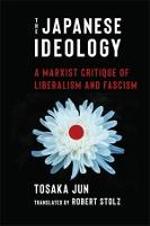A major Marxist thinker and critic in 1930s Japan, Tosaka Jun was among the world’s most incisive-yet underrecognized-theorists of capitalism, fascism, and ideology during the years before World War II. The Japanese Ideology is his masterpiece, first published in 1935, as Japan and the world plummeted into an age of reaction. Tosaka offers a ruthless philosophical critique of contemporary ideology that exposes liberalism’s deep complicity with fascism. The Japanese Ideology provides a materialist analysis of the reactionary ideology then overtaking Japan, with profound significance for anywhere fascism has taken root. Modeled after Marx and Engels’s The German Ideology, it critiques idealism as the common ground for liberalism and fascism, against which only historical materialism can suffice. Tosaka demonstrates how liberal and fascist ideas at once justified and concealed Japan’s colonization of East Asia, and he investigates the many traces of fascism in Japanese thought and society. The Japanese Ideology makes an important intervention in Marxist theory by criticizing reliance on the East/West binary and the notion of the “Asiatic mode of production.” Robert Stolz’s translation introduces Anglophone readers to a classic of twentieth-century Marxist thought by an unsung peer of Gramsci and Benjamin with striking relevance today.

The Japanese ideology : a Marxist critique of liberalism and fascism
ISBN: 9780231216531
Format: Paperback
Publisher: *Columbia University Press
Origin: US
Release Date: October, 2024


